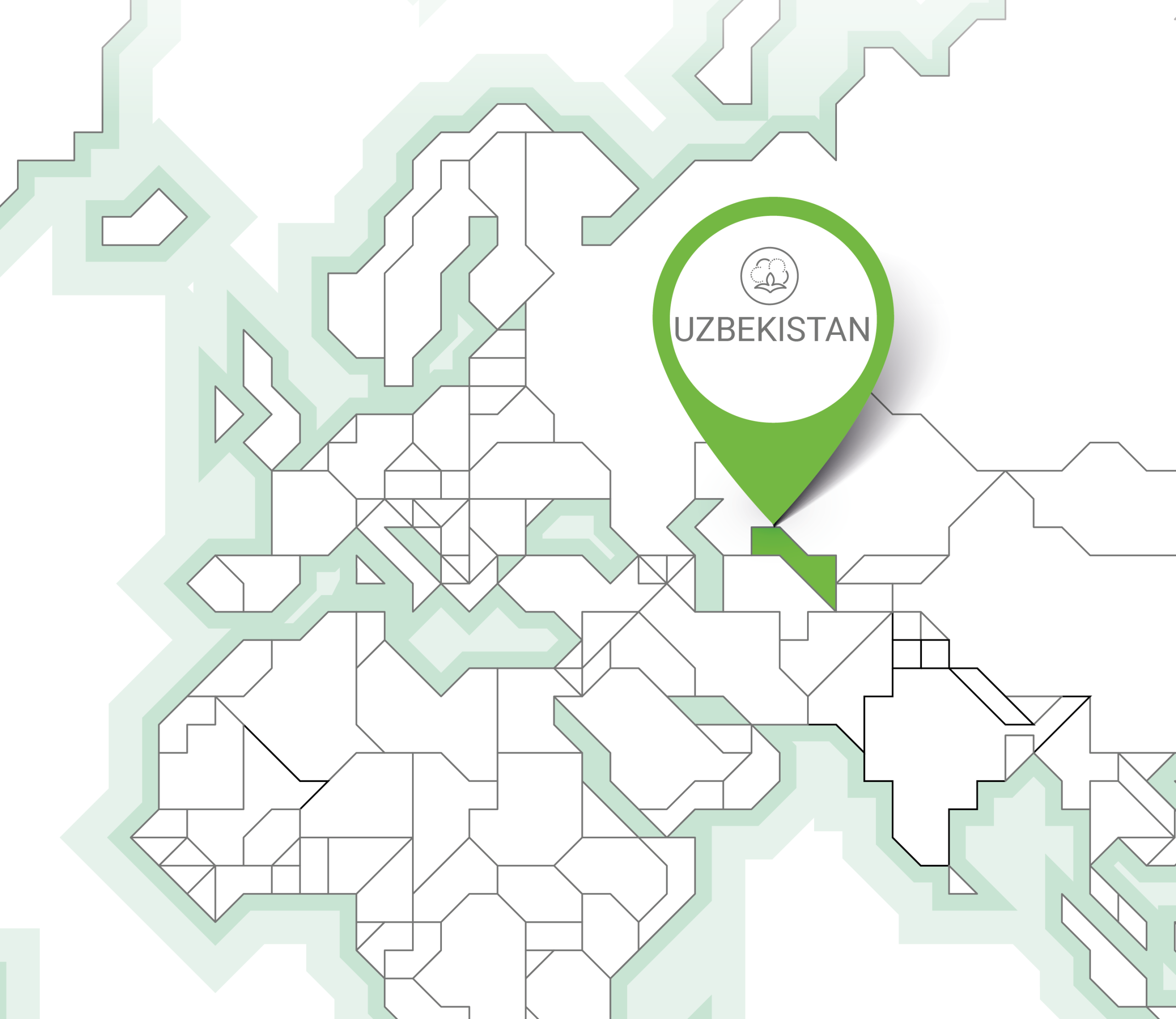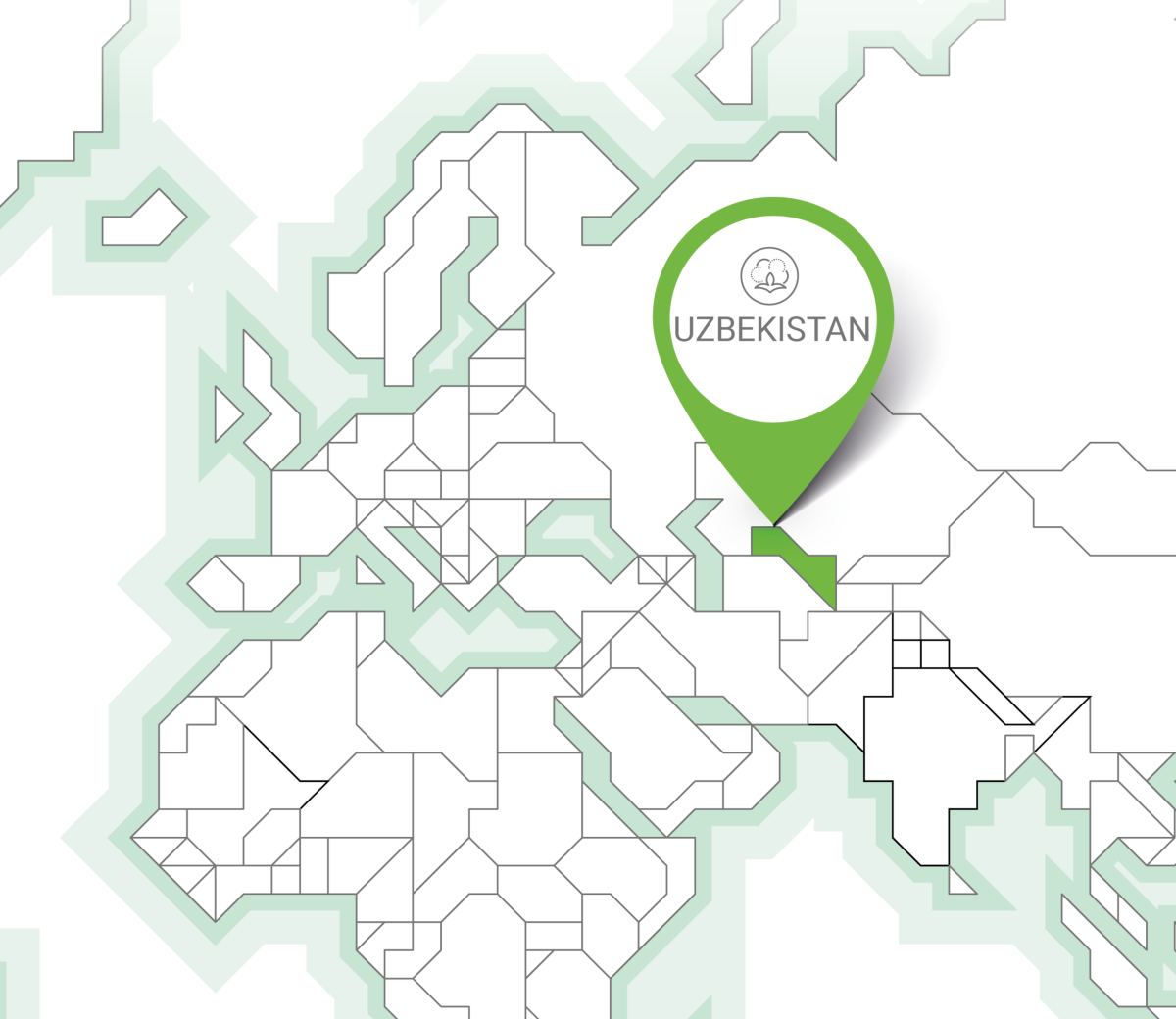

In 2017, the International Finance Corporation (IFC) and the German Agency for International Cooperation (GIZ) began pilot projects replicating the Better Cotton Initiative (BCI) Standard System in Uzbekistan. By the start of the 2022/23 season, the BCI Council gave its approval for a formal BCI Programme to be opened in the country. The registration of BCI’s official office in Uzbekistan was completed in July 2023.
Uzbekistan has had well-documented labour issues in the cotton sector. The launch of the BCI Programme in the country came after the International Labour Organization found that Uzbekistan has successfully eliminated systemic child labour and forced labour in its cotton sector.
Since 2017, Uzbekistan’s economy has been undergoing a significant transformation. Institutional and structural reforms have been introduced, aimed at reducing the state’s presence in the economy and driving modernisation. The Strategy of Agricultural Development for 2020-2030 was adopted in 2019, aiming to trigger significant reforms in the agricultural sector while supporting farm incomes, creating rural jobs, ensuring food and nutrition security, generating export revenues, and decarbonising economic growth.
Some of these reforms have already been implemented, such as the introduction of a new market mechanism for producing cotton and the creation of cotton-textile clusters – enterprises with vertically integrated production. As of 2024, there are 134 cotton clusters, made up of private companies that produce, gin, and spin cotton in Uzbekistan. Some of the more fully integrated clusters also produce fabric and ready-to-wear garments.
Which regions grow BCI Cotton in Uzbekistan?
Currently, BCI Cotton is grown in cotton clusters in Bukhara, Navoi, Samarkand and Tashkent.
When is BCI Cotton grown in Uzbekistan?
Cotton in Uzbekistan is planted during April and early May, and harvested from September to mid-November.
Since 2020, we have been an active participant in BCI’s trainings as a Programme Partner. Having thoroughly studied the Principles and Criteria of BCI, we became convinced that it is the most necessary and useful mechanism in cotton cultivation. The advantages in selling cotton products and the conditions of free trade in the world market prompted us to obtain the BCI license.
By adopting sustainable practices in our cluster, through existing licenses and certificates, we expand our customer base and supply quality Uzbek cotton products in major markets such as European markets. In this way, we will contribute to strengthening the economy of our country, creating new jobs and increasing the income of the population. As a result, the favourable environment in the field in Uzbekistan will be further strengthened.
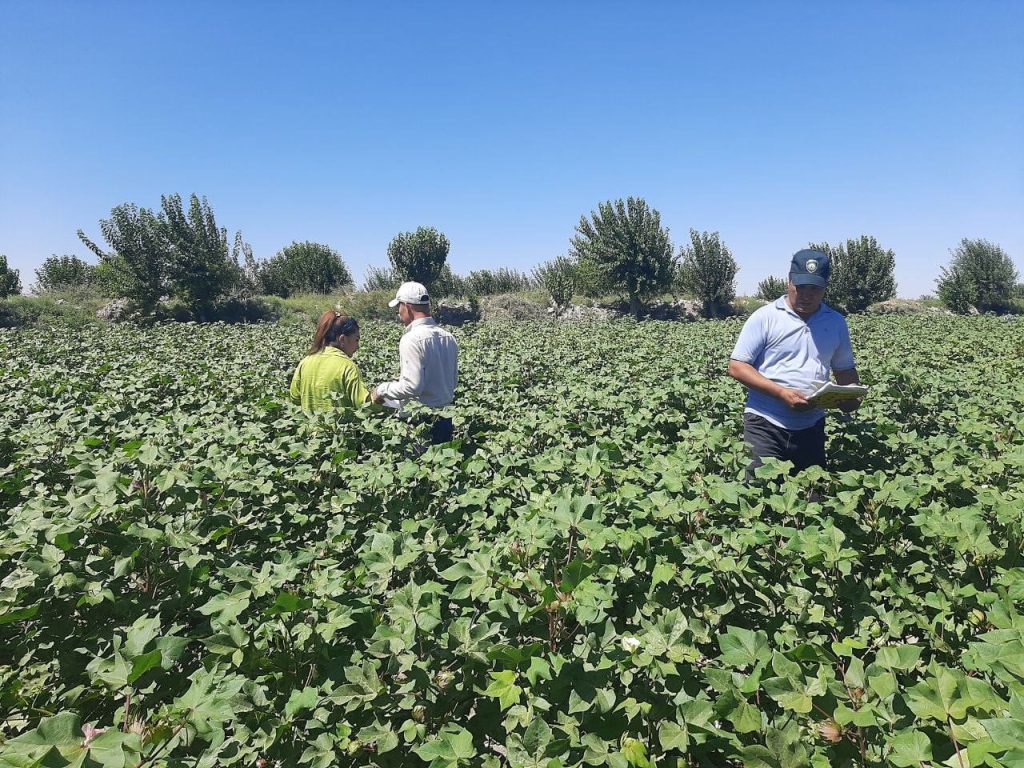

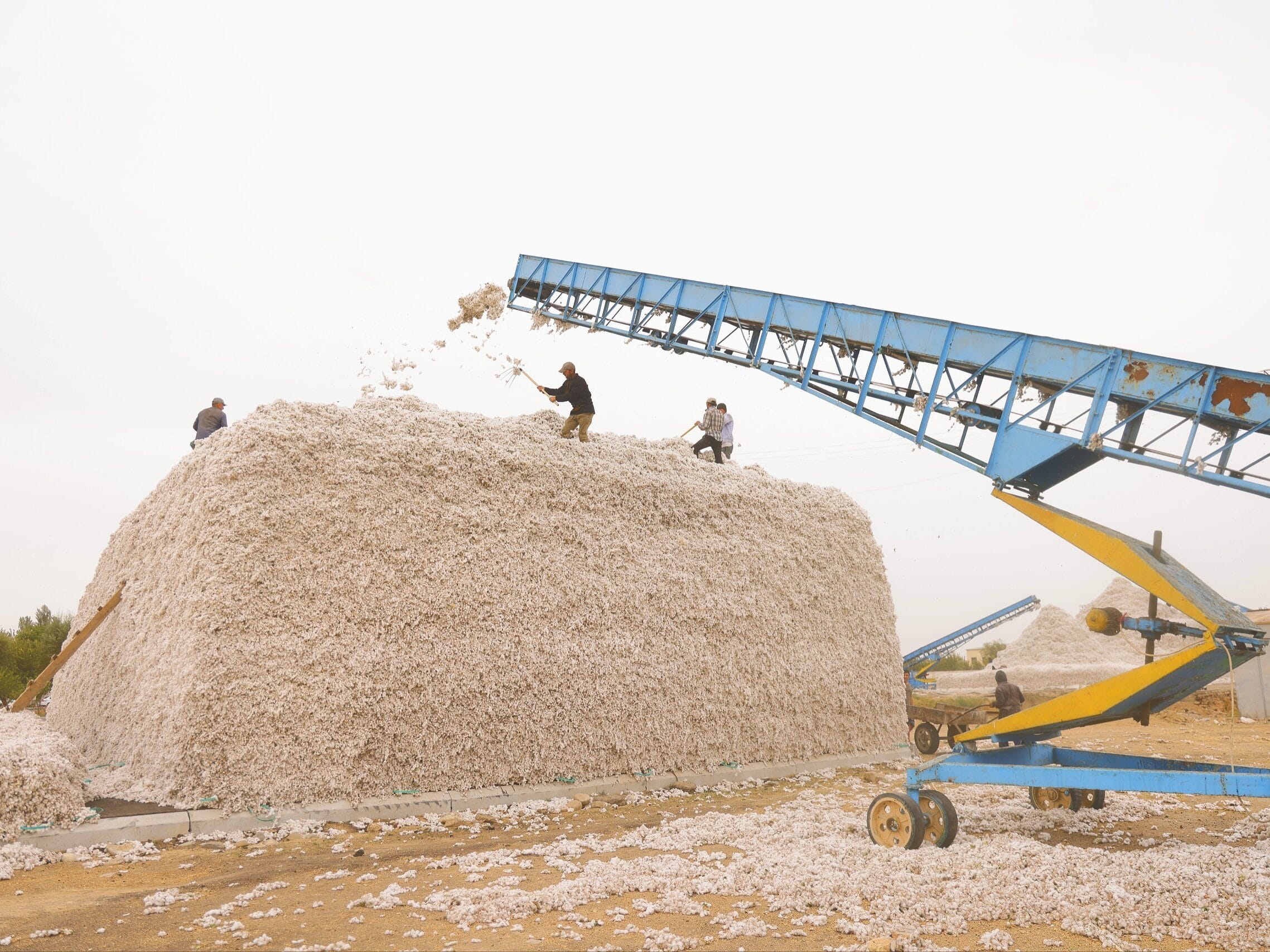

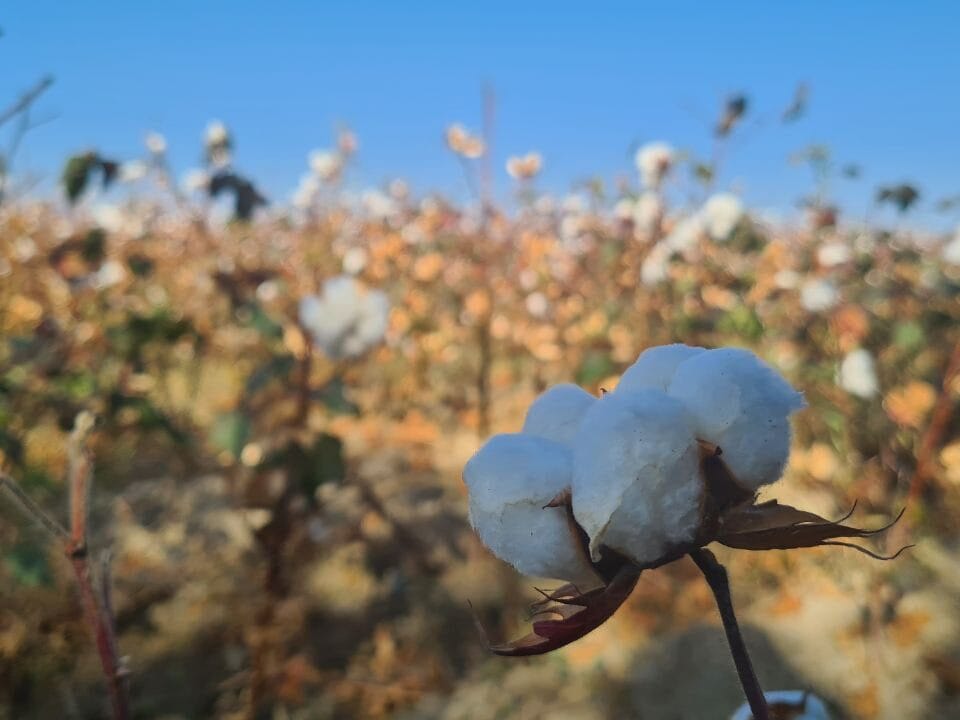

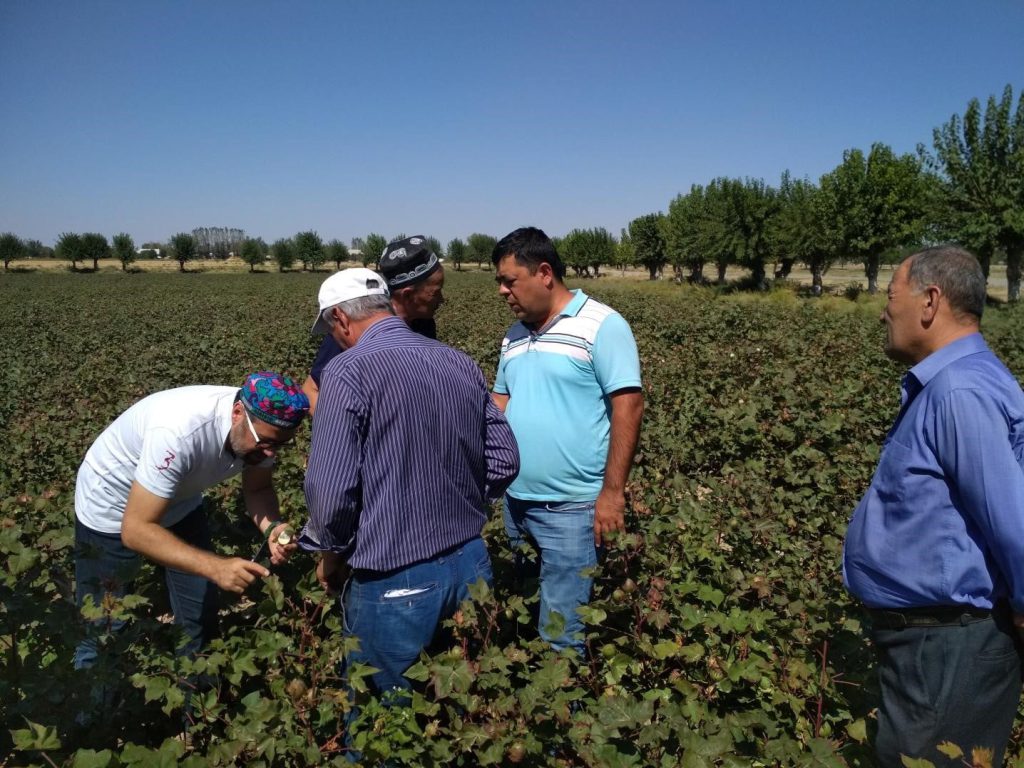

Sustainability Challenges
Uzbekistan’s historical struggles with systemic forced and child labour in cotton production are well-documented, and this was a key focus as we set up our Programme in the country. Through an enhanced decent work monitoring programme in addition to the implementation of the BCI Standard System, we are providing robust and credible monitoring systems that can demonstrate impact and results delivered on the ground.
It is essential that we are able to verify that farms are meeting our requirements around decent work, which are based on the International Labour Organization’s (ILO) fundamental principles and rights at work, including freedom from child, forced and compulsory labour. Over 1,000 workers, management, community leaders, local authorities and other stakeholders have been involved with our decent work monitoring in Uzbekistan. This rigorous monitoring provided a diverse and in-depth perspective of the labour situation on the ground, and found no evidence of systemic state-imposed forced labour or child labour.
Our assurance approach in Uzbekistan is crucial for demonstrating the credibility of our system to the global market and to our Members. Coupled with the launch of our traceability solution, which enables our Members to track Traceable BCI Cotton to the sourcing country, the robustness of our monitoring and the transparency of our processes provide confidence for those looking to source licensed BCI Cotton from Uzbekistan. To read more about our assurance approach, head to this link.
Other sustainability challenges include land degradation, soil salinisation, reduced water quality, wind and water erosion, and decreased productivity of arable land. Uzbekistan is particularly vulnerable to water shortages, with 80% of its water coming from outside the country. This issue is made more difficult by the impacts of climate change.
To define an approach to address these sustainability issues, in 2023 BCI launched a sustainability roadmap for Uzbekistan, in partnership with national stakeholders. To read more about this action plan, please click here.
Get in touch
Contact our team via the contact form if you’d like to learn more or become a partner, or if you’re a farmer interested in farming BCI Cotton.








































